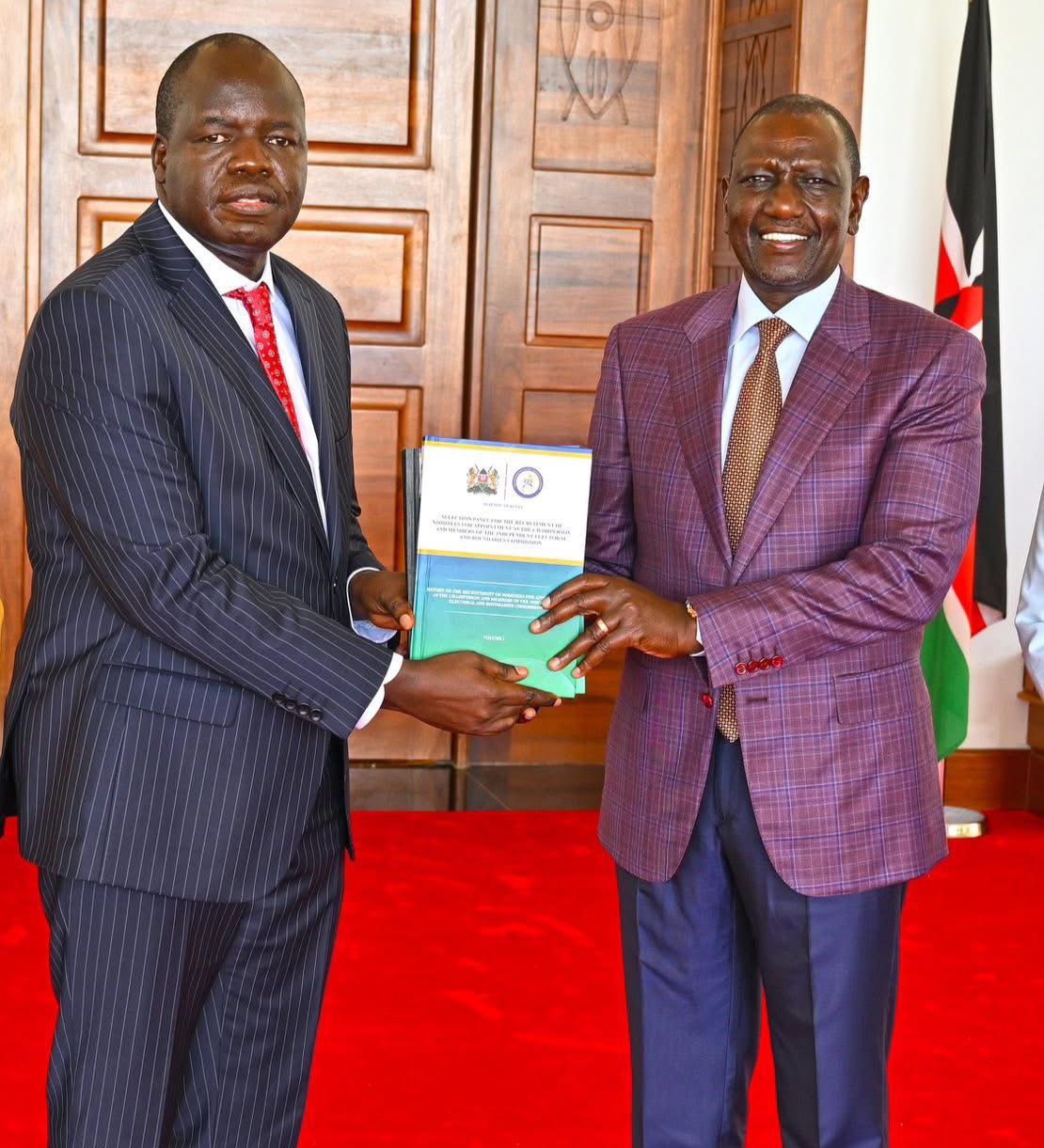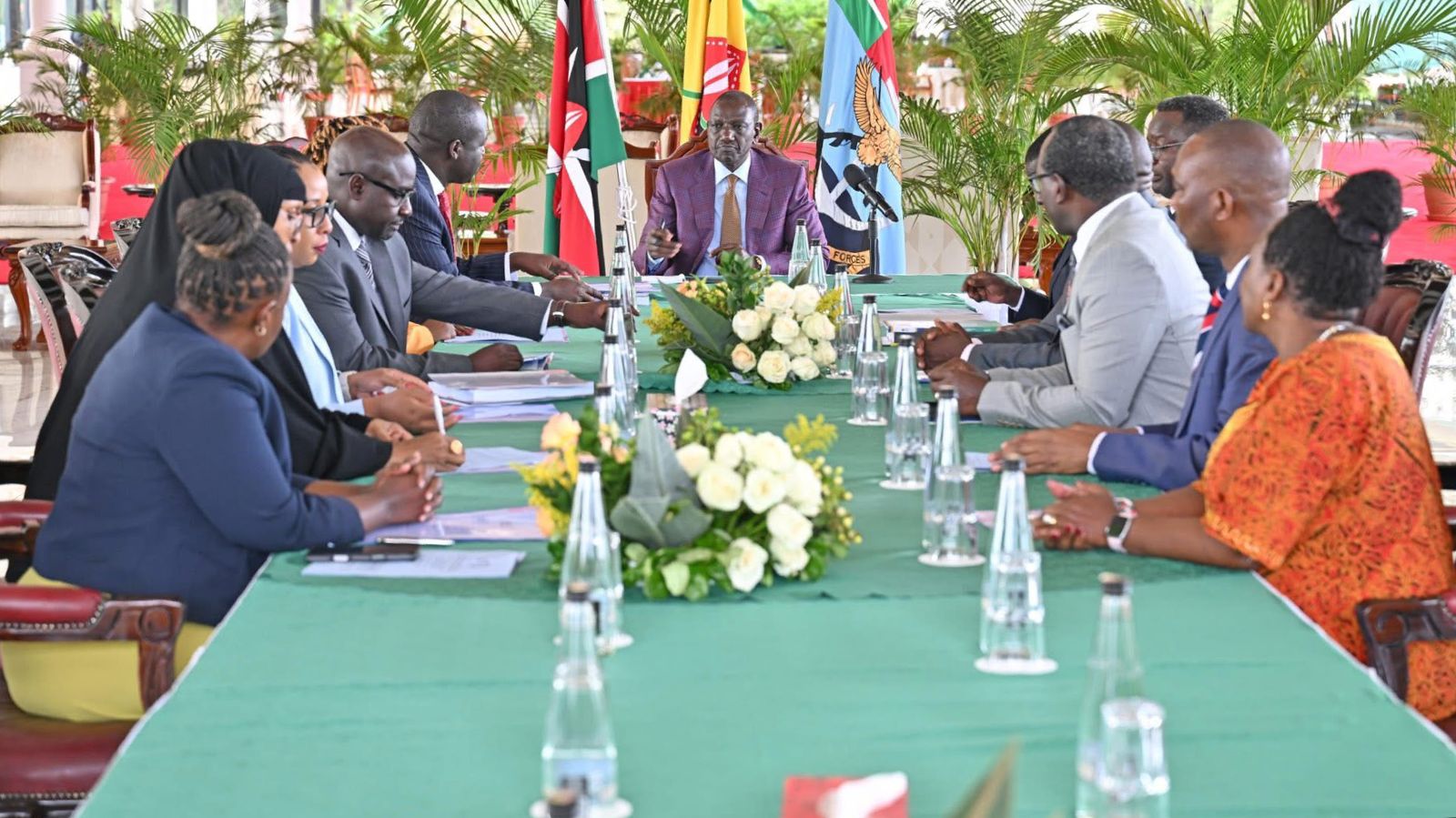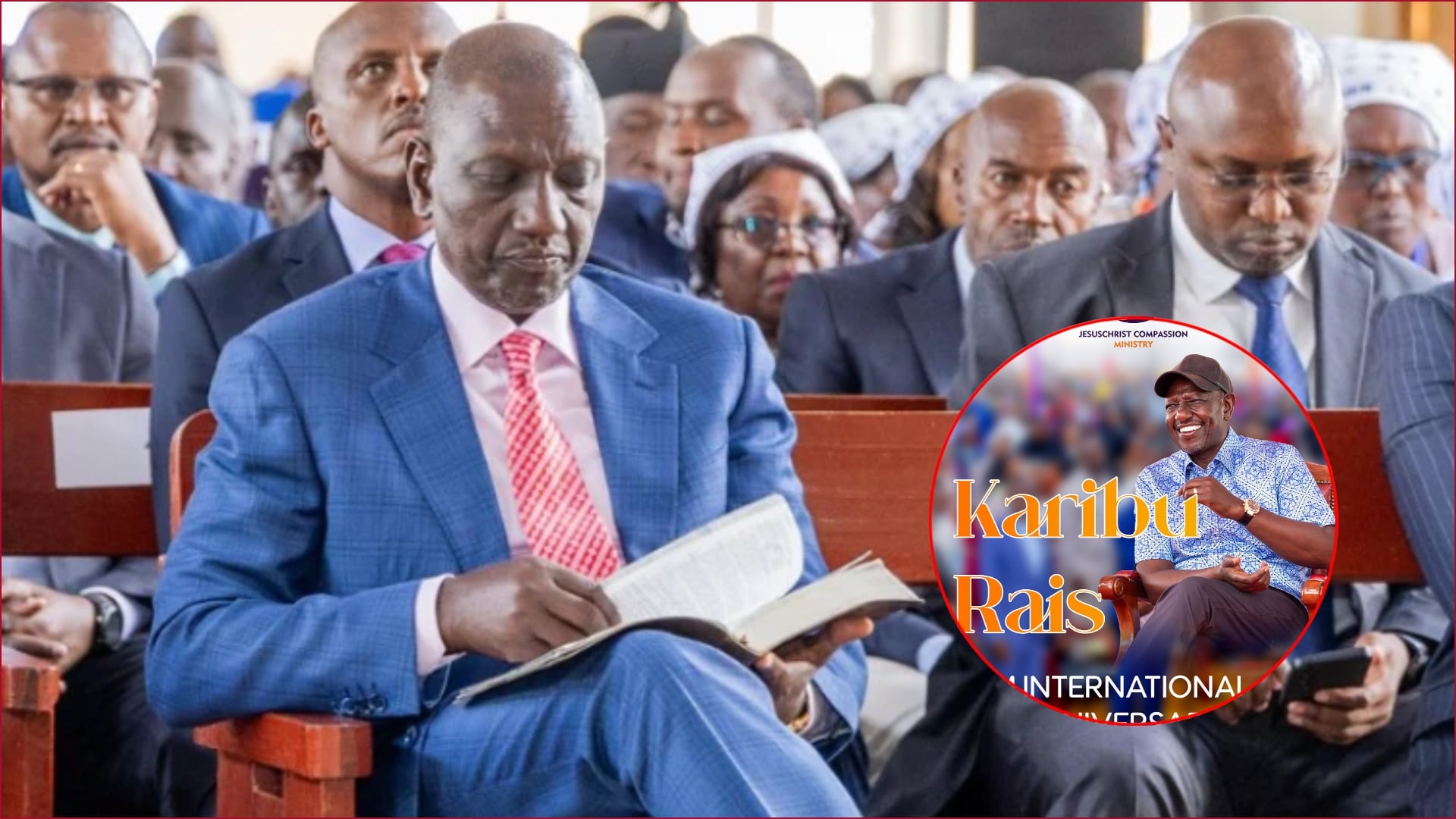President William Ruto has received the report on the recruitment of nominees for the positions of chairperson and members of the Independent Electoral and Boundaries Commission (IEBC).
The report was presented to him by the IEBC Selection Panel, led by Nelson Makanda, at State House, Nairobi, on Tuesday, May 6.
In a statement after receiving the report, Ruto commended Makanda and the entire committee for their work.
"This morning, I received the report on the recruitment of nominees for the positions of Chairperson and Members of the Independent Electoral and Boundaries Commission (IEBC) from the IEBC Selection Panel, State House Nairobi. I commend the panel, chaired by Dr Nelson Makanda, for their diligent and commendable work," he said.
Ruto said he will now nominate and transmit the names to the National Assembly as outlined in the law.
Read More
"In accordance with the provisions of the IEBC Act, I will nominate and transmit the names to the National Assembly in full fidelity to the constitutional principles that guide our system of governance," he added.

Within seven days of receiving the report, the president is required to nominate one individual for the position of chairperson and six individuals for the positions of members of the commission.
These names are then submitted to the National Assembly for vetting and approval.
The National Assembly has up to 28 days to conduct the vetting process, during which it may approve or reject the nominees.
If the nominees are approved, the president must formally appoint them through a Gazette notice within seven days of receiving the approval.
Notably, the selection panel that conducted the recruitment stands dissolved after submitting the names to the president, unless parliament resolves to extend its tenure if needed.
Throughout this process, constitutional requirements must be observed, including the principles of gender equity and regional balance.
No more than two-thirds of the members of the commission should be of the same gender, and regional diversity must be taken into account.






